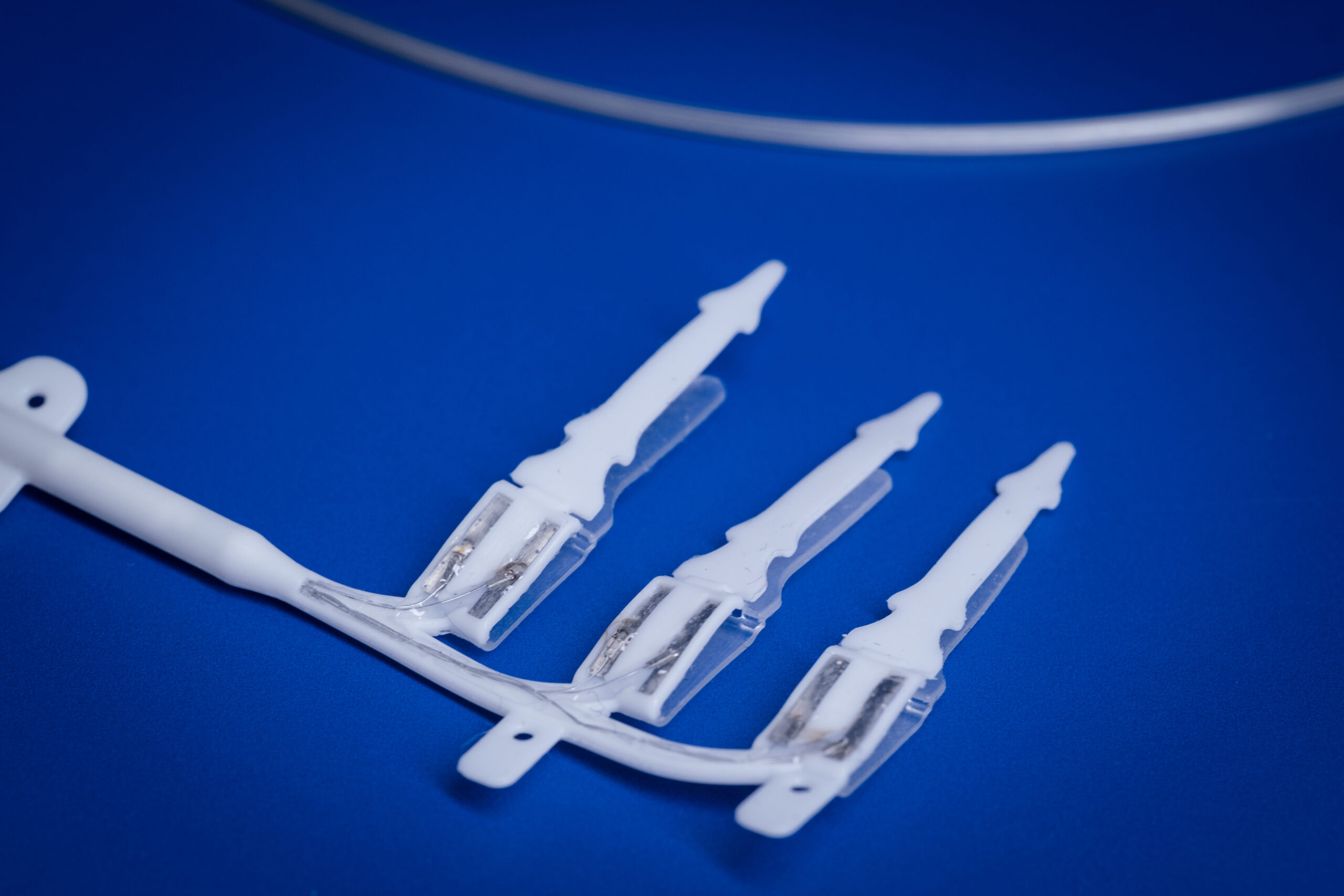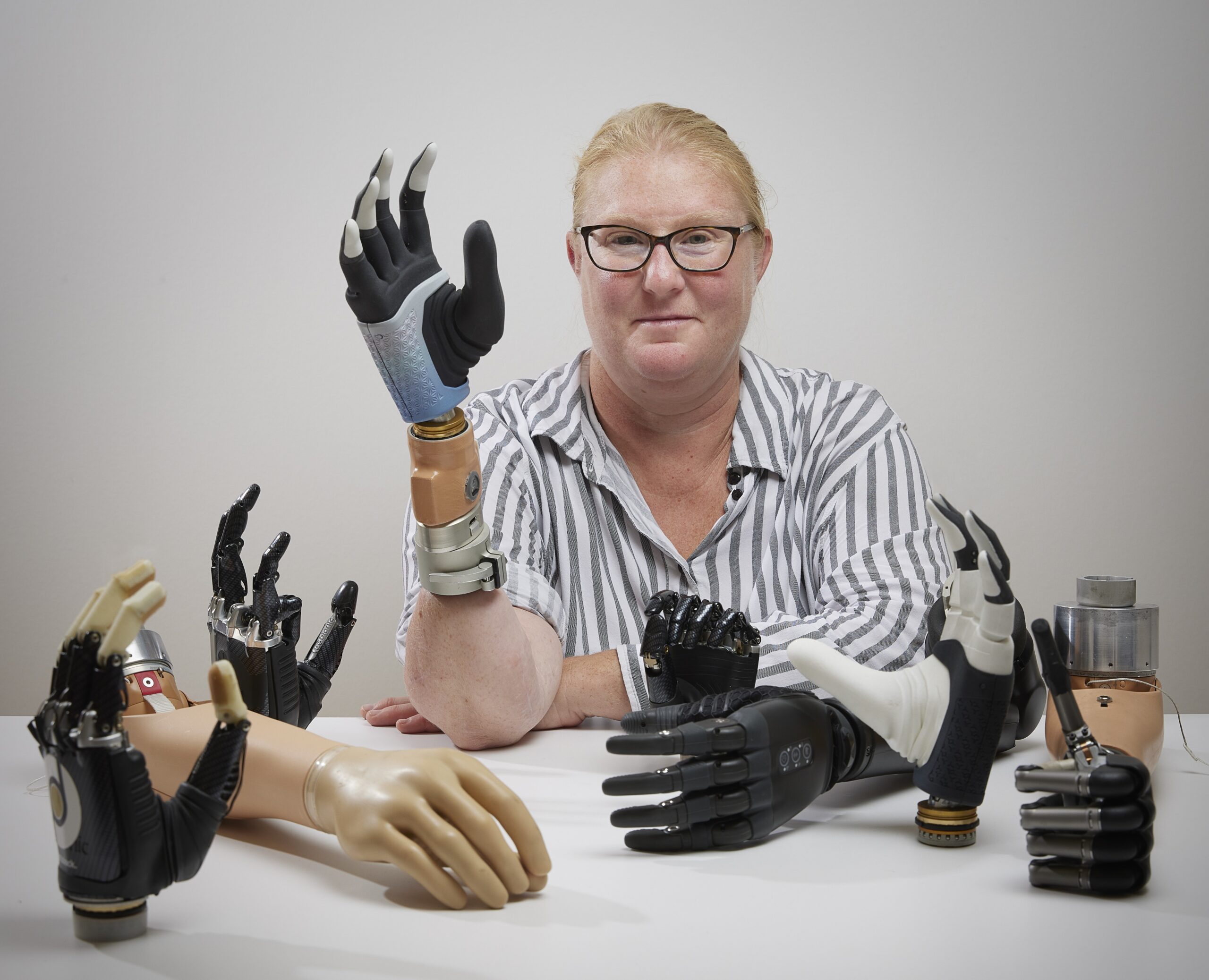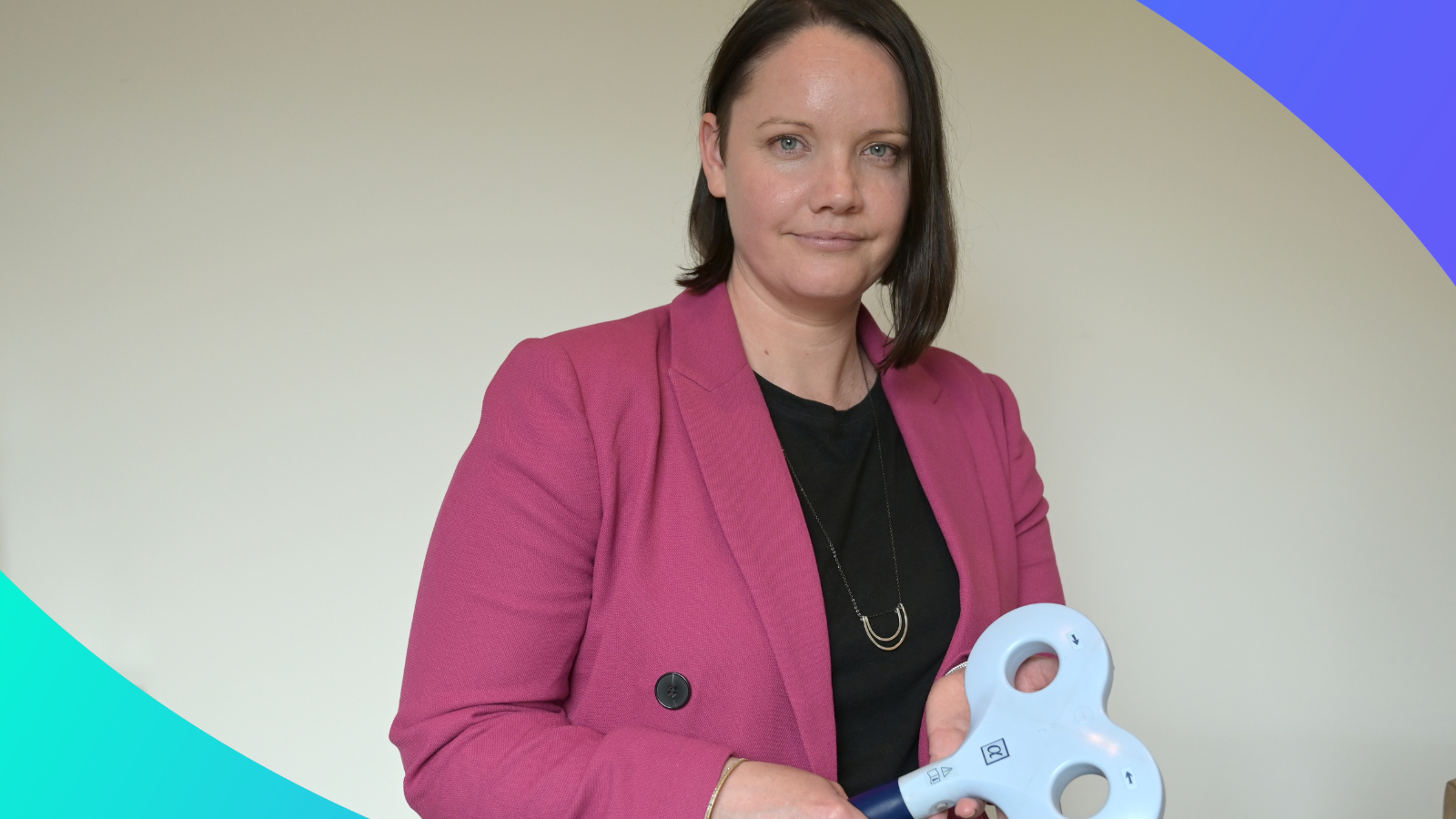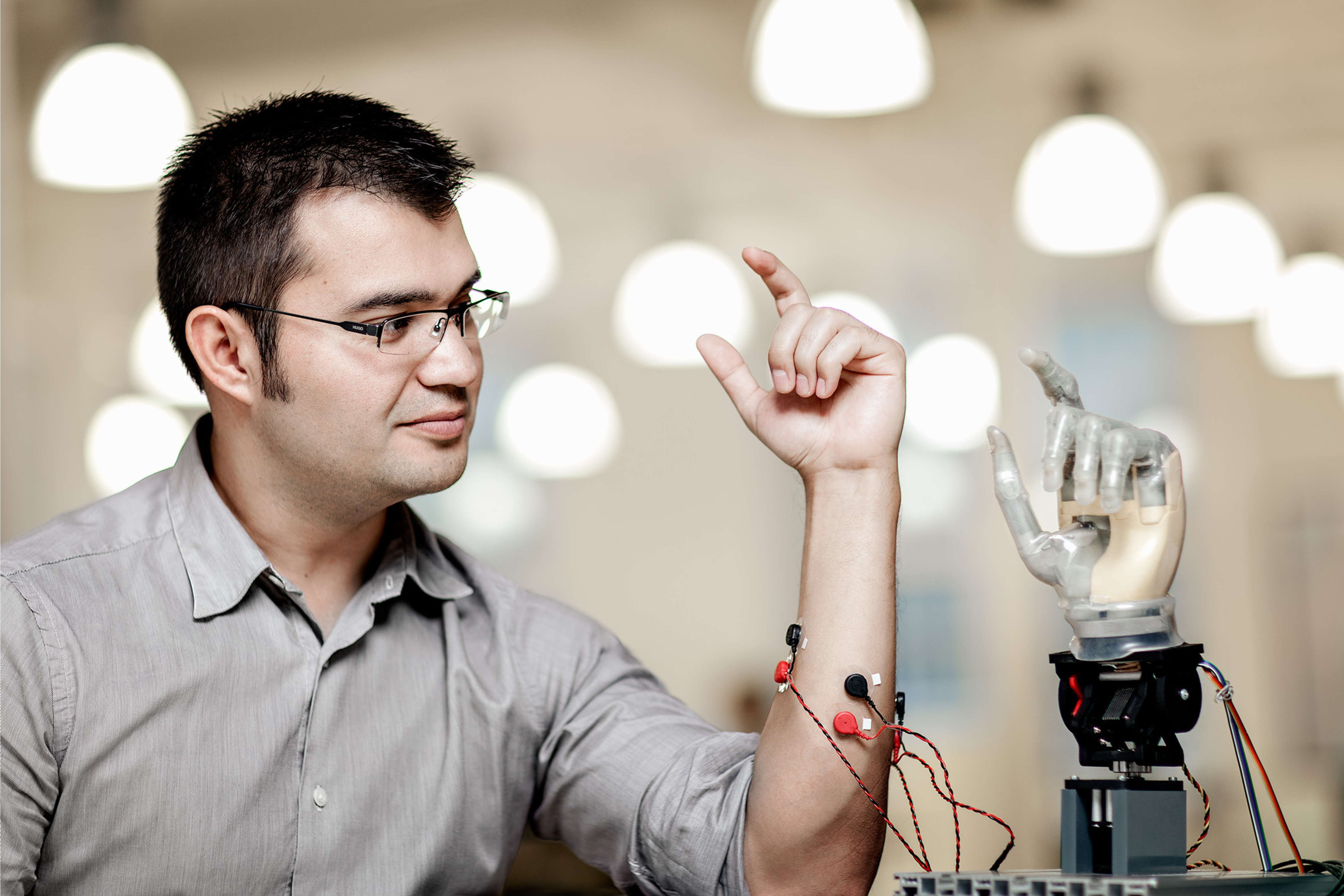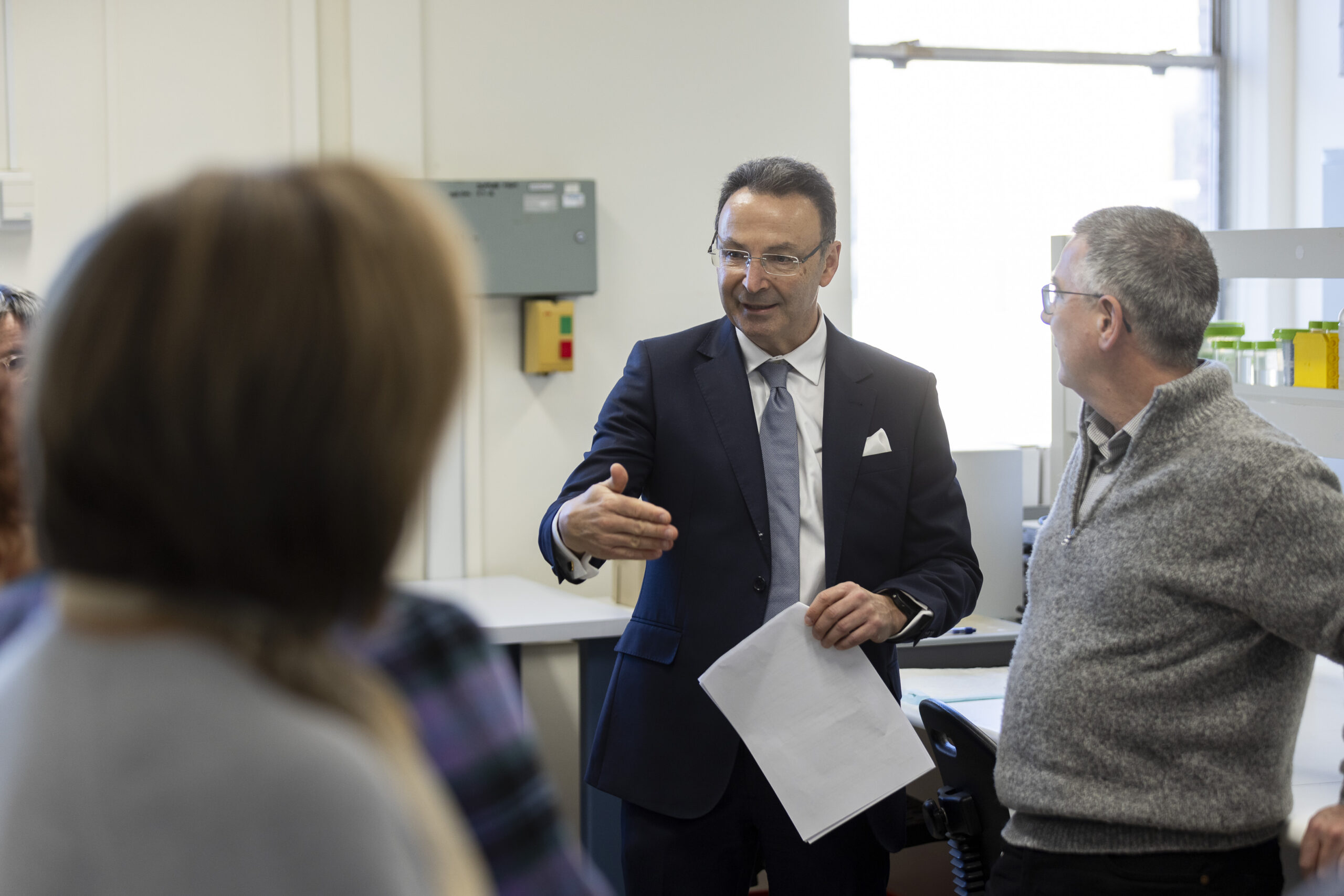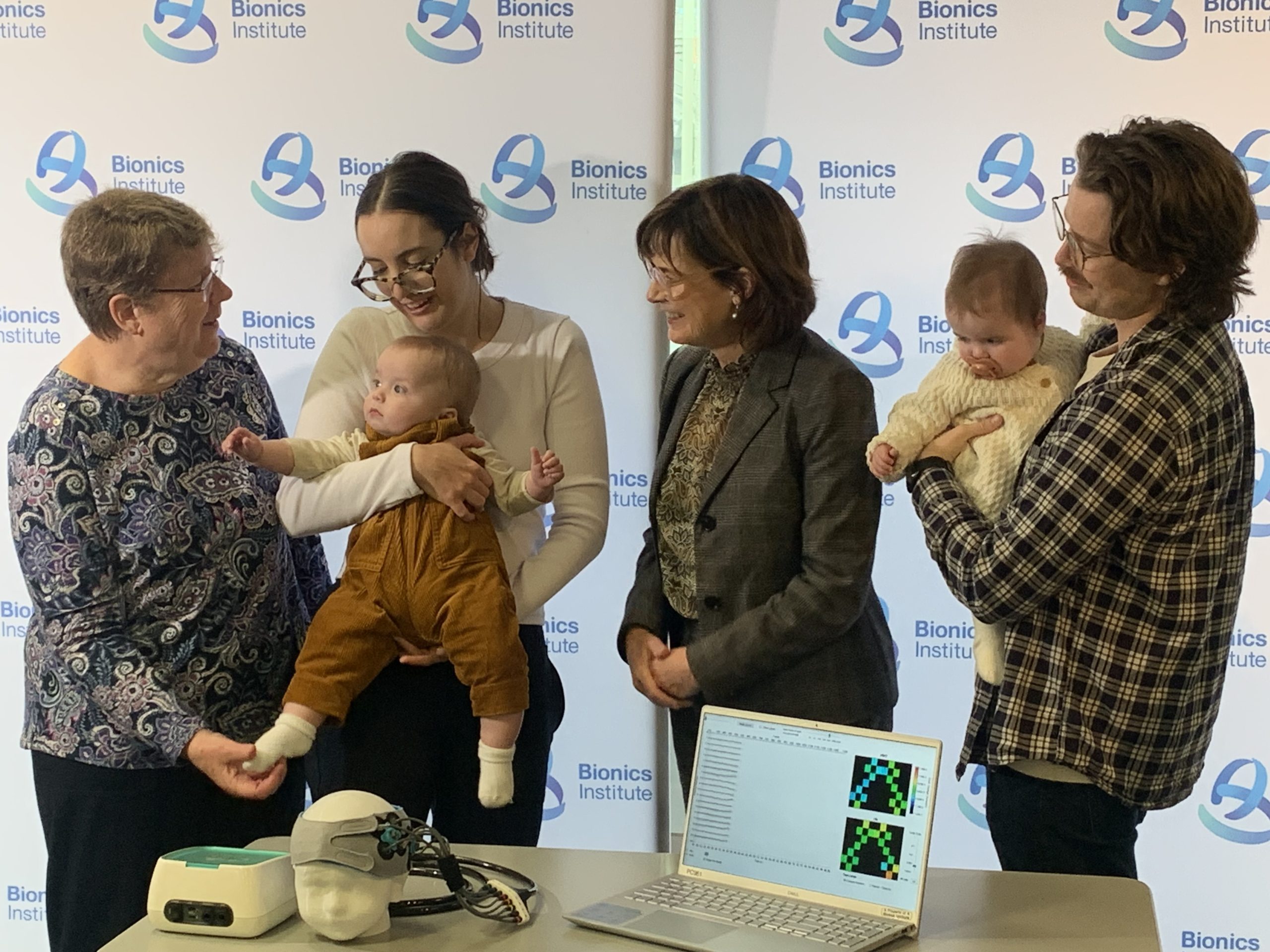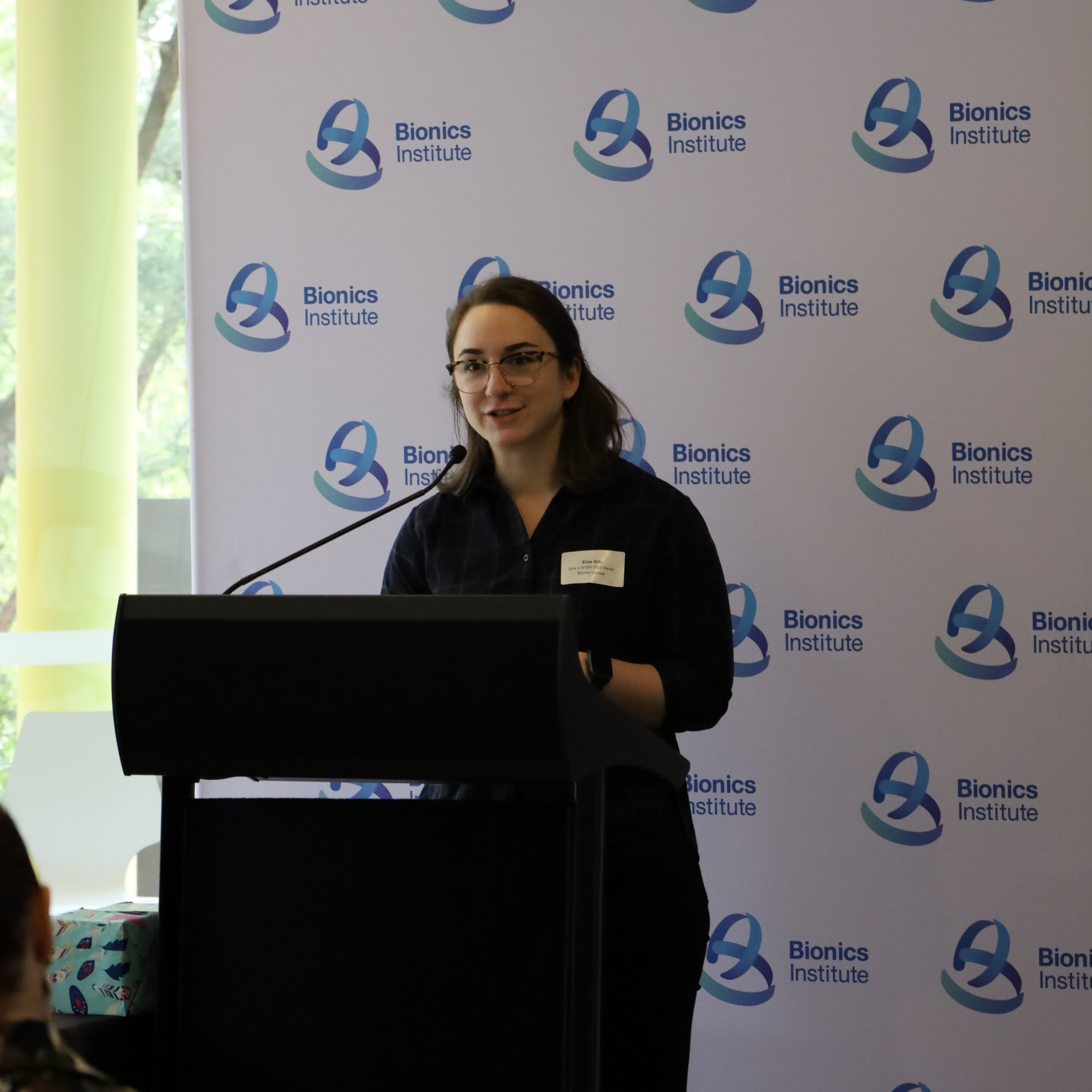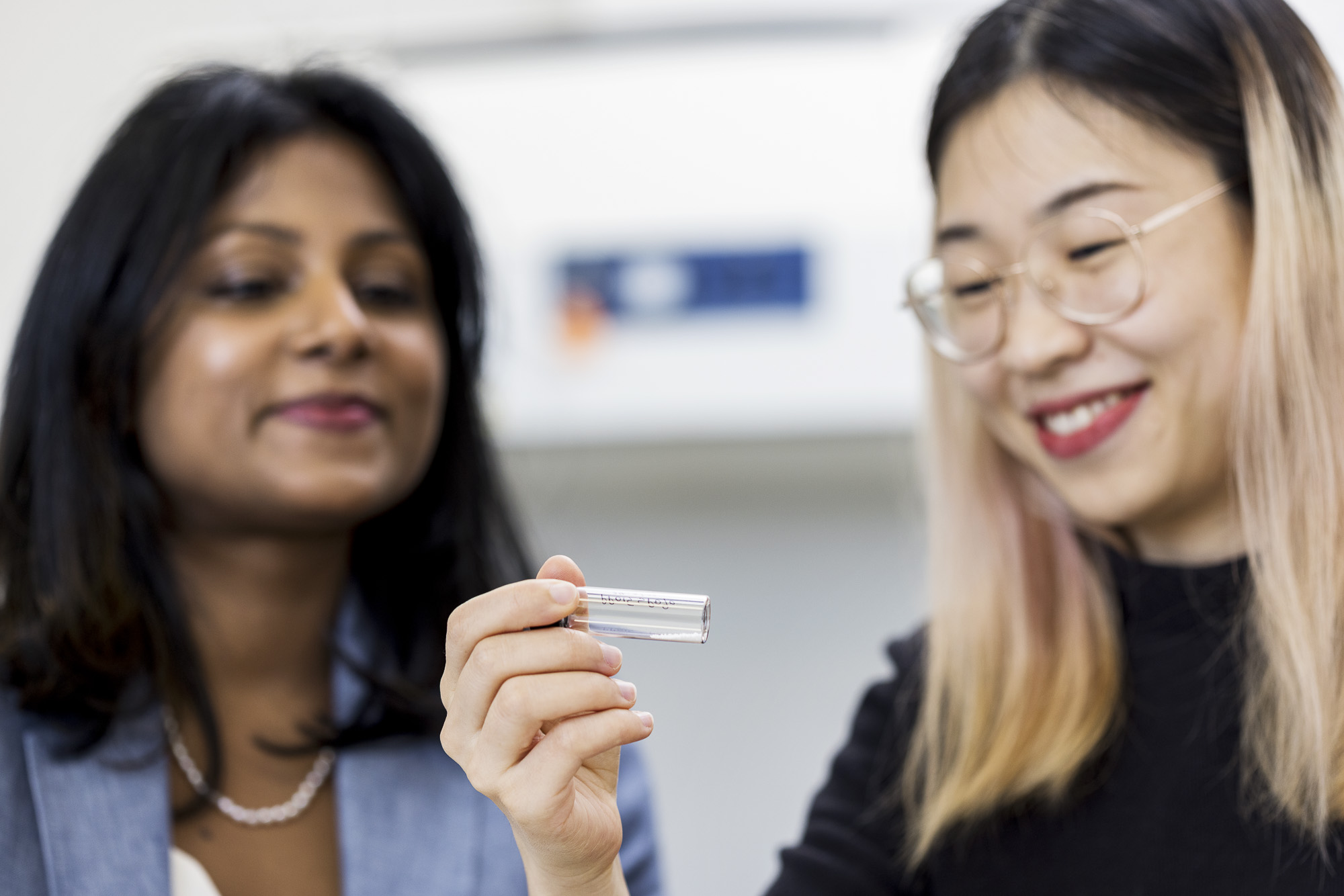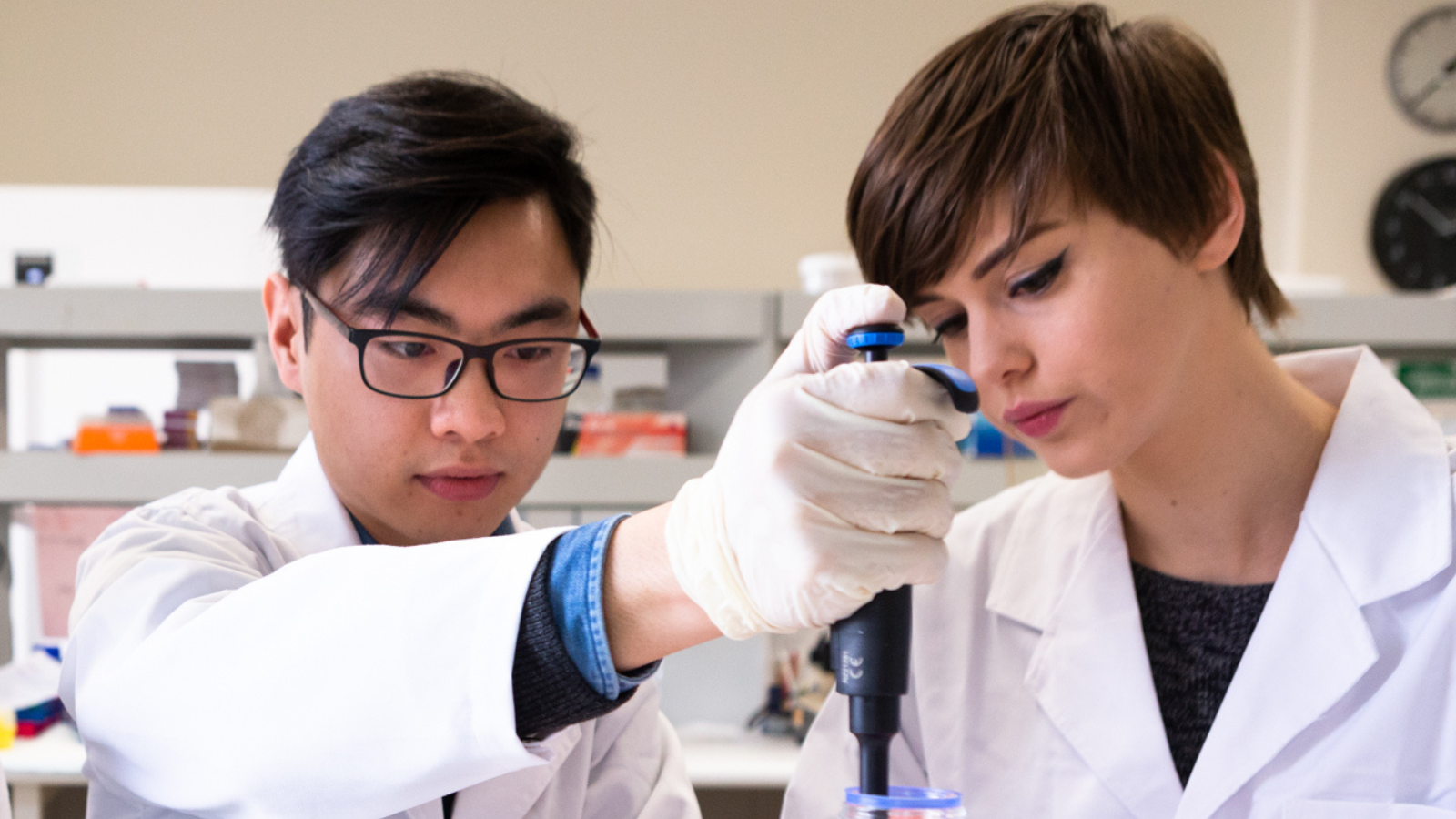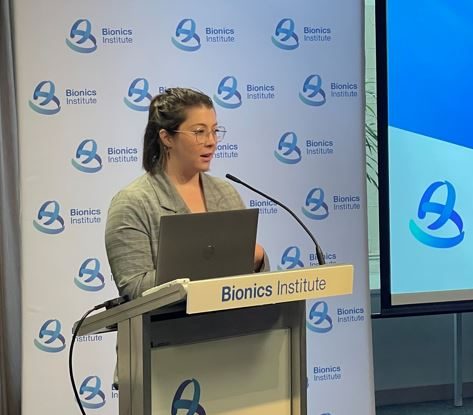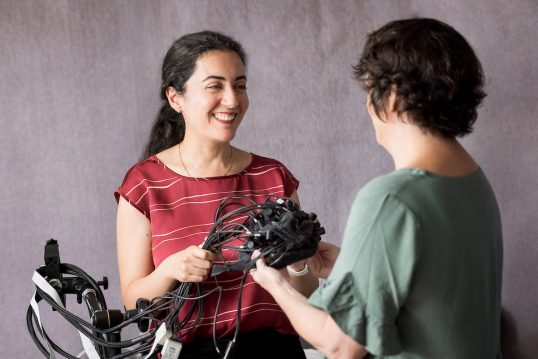Latest News
In a world first, our electrical stimulation device to treat Crohn’s disease has been implanted in a patient at the Austin Hospital, with the aim of preventing inflammation of the gut recurring after surgery.
This breakthrough is a significant step forward for Crohn’s treatments and could help transform the lives of people suffering from the disease.
With no current cure available and limited treatment options, most patients with Crohn’s require ongoing surgeries to remove damaged sections of their gut as well as life-long drug therapies to manage symptoms.
Our device, the size of a thumbnail, attaches to the vagus nerve in the abdomen to kick start the body’s natural anti-inflammatory mechanisms, explains Professor James Fallon, CTO and Head of Research at the Bionics Institute, who leads this research.
“The vagus nerve controls many functions in the body, such as digestion, heart rate and the immune system,” Professor Fallon said.
“Our device is made up of tiny electrodes that stimulate the vagus nerve to trigger the body’s natural defences and prevent inflammation from damaging the gut – with the hope of allowing patients to continue their lives without the fear of further surgery.”
Read more about our vagus nerve research here.
Potentially life-changing research
This breakthrough is a significant step forward for Crohn’s treatments and could help transform the lives of people suffering from the disease.
With no current cure available and limited treatment options, most patients with Crohn’s require ongoing surgeries to remove damaged sections of their gut as well as life-long drug therapies to manage symptoms.
Our device, the size of a thumbnail, attaches to the vagus nerve in the abdomen to kick start the body’s natural anti-inflammatory mechanisms, explains Professor James Fallon, CTO and Head of Research at the Bionics Institute, who leads this research.
“The vagus nerve controls many functions in the body, such as digestion, heart rate and the immune system,” Professor Fallon said.
“Our device is made up of tiny electrodes that stimulate the vagus nerve to trigger the body’s natural defences and prevent inflammation from damaging the gut – with the hope of allowing patients to continue their lives without the fear of further surgery.”









